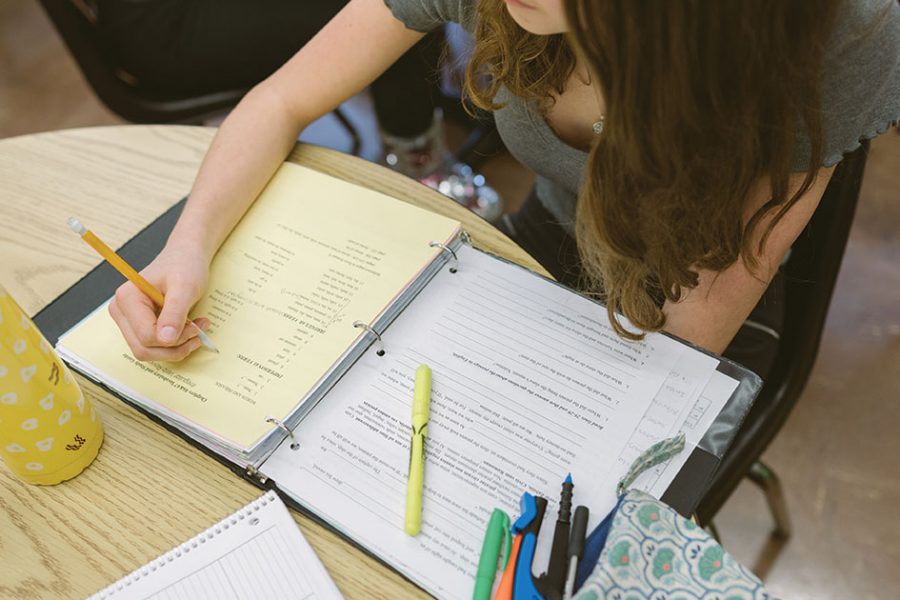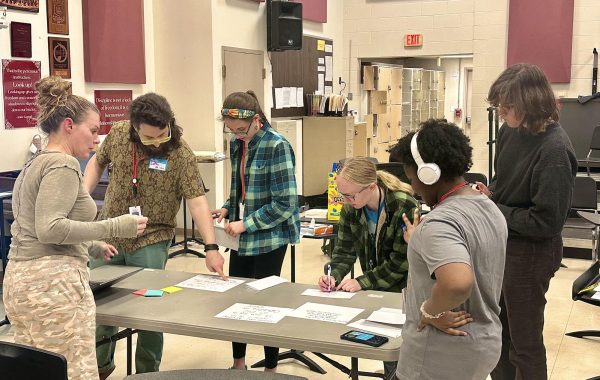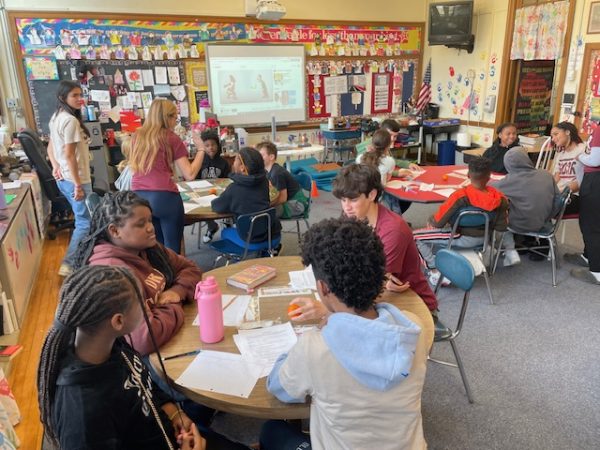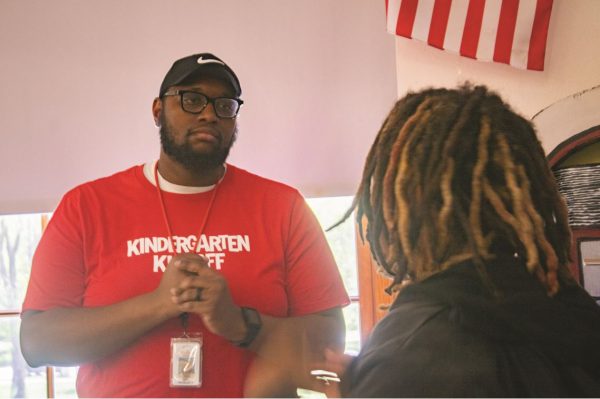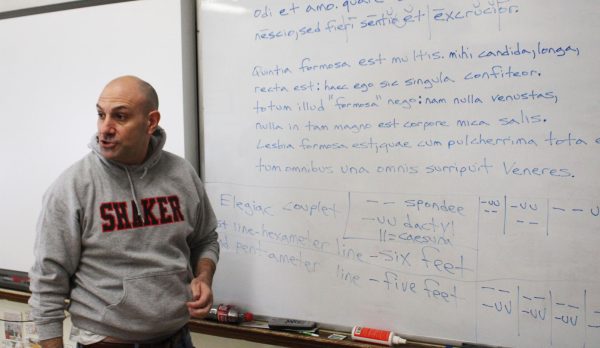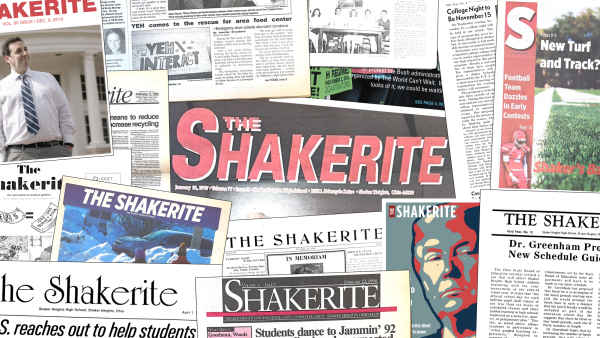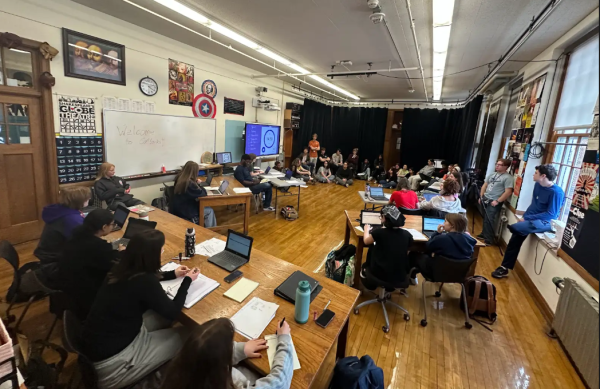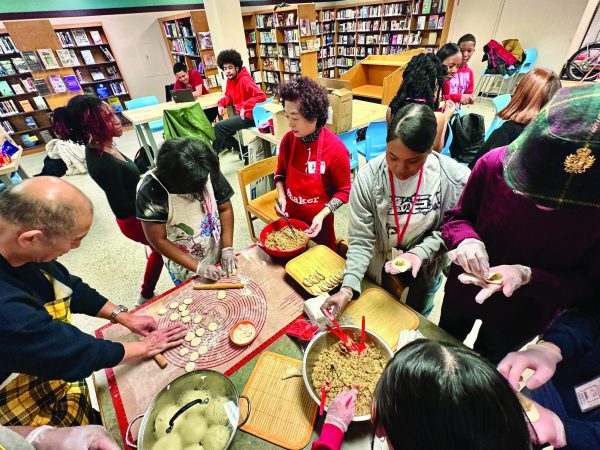How to Stay Focused While Studying
“I’ve started not doing my homework in my bed and I’ve started doing it at a table, and it’s really helping. I get it done quicker and I’m less distracted,” Bourdrez, said.
Freshman Grace Bourdrez studies every night. After school, homework and dance, she settles into bed for an hour or two of studying. She puts her phone away to minimize distractions and takes breaks.
But she is tired, and studying in bed only makes her want to sleep. “I’m not really motivated to study because usually I feel pretty prepared, and then I just procrastinate studying,” Bourdrez said.
“I still have good grades, but I feel like they could be a lot better if I studied more. I definitely don’t study as much as I should.”
Bourdrez is not alone. High school students today have difficulties staying focused while studying. Seven out of 18 people surveyed by The Shakerite said they have ineffective study habits.
“I maybe complete homework efficiently, but not studying — I’m terrible at studying,” freshman Autumn Roberts said.
Studying methods — unlike homework — are open to interpretation. There are many different ways that students can study, while directions for homework are often straightforward.
Ineffective studying stems from procrastination, distractions, cramming and poor study environments, according to University of the People. Poor studying is an impediment to academic success.
“Most of our grades come from tests, and studying is a big part of that,” Roberts said.
Curriculum and Instruction Technology Specialist Lauren Priestley agrees. “Studying has an impact when the studying is purposeful. Studying can deepen understanding of concepts, help make connections, and prompt student reflection,” she wrote in an email interview.
So, how can one study well?
Adopt better organization and time management.
One of the worst study habits is procrastination. Students put off studying to avoid confronting the material. However, this leads to a lack of preparation — or even worse, cramming.
To prevent procrastination, students should create a to-do list or a study calendar detailing what needs to be done each day preceding the test and presenting a study plan that is conquerable.
“Designing a plan and executing a study plan makes studying more efficient,” Paychex Inc. Human Resource Consultant Chris Jankus said via phone. Jankus offers a time management lecture at Cleveland State University.
Lists and plans are very important, Priestley wrote. They “help manage time to avoid last-minute cramming” and help ensure sufficient time to attend tutoring or ask questions.
“Organization and time management are key,” intervention specialist Kady Cole said.
Ultimately, it is up to you to make sure that you are studying. It may seem daunting, but taking the leap to study can be rewarding — both academically and mentally.
Eliminate distractions.
Students are relentlessly exposed to technology. Three quarters of college students surveyed constantly engage with technology while studying, according to an online textbook company study, and 38 percent of them cannot refrain from checking their phones for more than 10 minutes. In an 18-person survey, 83 percent of SHHS students said that they are distracted while studying sometimes, often or always.
To study effectively, put your phone in another room.
“Make sure you are fully focused on your homework and not other things at the same time,” freshman Anna Carpenter said. “Usually my phone’s in the other room so it’s not a distraction.” If you can’t bear to part from your phone for long, consider rewarding yourself with phone time at certain intervals during your study period.
“Just flipping your phone over doesn’t do anything; you need to put it out of sight,” district intervention specialist Lauren Babcock said.
A University of Connecticut study shows that students who multitask have to study longer and receive lower grades. By eliminating distractions, you stand to complete your work more efficiently and effectively.
Plan ahead to study over a longer period of time.
Cramming may seem like an easy solution to procrastinated studying. But without a good night of sleep, one’s brain doesn’t function as well.
“You’re probably not gonna retain as much information,” Jankus said of cramming.
“Start early — a week before the test — and you don’t have to study for an hour every day; you could study for 10 minutes a day,” Bourdrez advised.
The 18-person survey concluded that the longer students study each night, the less sleep they get. “Sleep deprivation impacts attention, concentration, memory; this impact makes it difficult for the student to receive and organize information effectively,” Priestley explained.
“The longer you [study], it becomes more of your long-term memory, as opposed to just short-term memory when you’re cramming overnight,” Jankus added.
Make one page of notes with the main test points to review the morning of the test. Then, the day before a test, take a break or do something fun.
Maximize your study setting.
“The first thing a student needs to understand is what environment of studying works best for them,” Cole said. If your study group leads to off-topic discussions, it is better to study separately.
Furthermore, if you often fall asleep where you study on the couch or in your bed, it is likely an ineffective study spot.
“When you’re in your bedroom, what happens? You want to lay in bed and fall asleep,” Babcock explained.
To get the most out of your study time, make sure that you study alone or with someone who will stay on task. Find a place to study with no distractions — this could be your room, a study or a library. If you’re planning on studying for a long time, try switching up the scenery. Communal spaces such as Van Aken’s Market Hall specifically cater to students hoping to grab food while studying.
Jankus advocates studying with peers. “If you’re in the same class, you can do it together, and maybe in your discussion, really solidify your knowledge” Jankus said.
Of course, it is always OK to ask for help, too, Babcock said. “Students should always feel comfortable approaching teachers for help.”
Ultimately, employing these habits ensures more efficient, effective studying. “Recently I’ve started not doing my homework in my bed and I’ve started doing it at a table,” Bourdrez said, “and it’s really helping. I get it done quicker and I’m less distracted.”
A version of this article appears in print on pages 12-14 of Volume 89, Issue II, published April 26, 2019.

